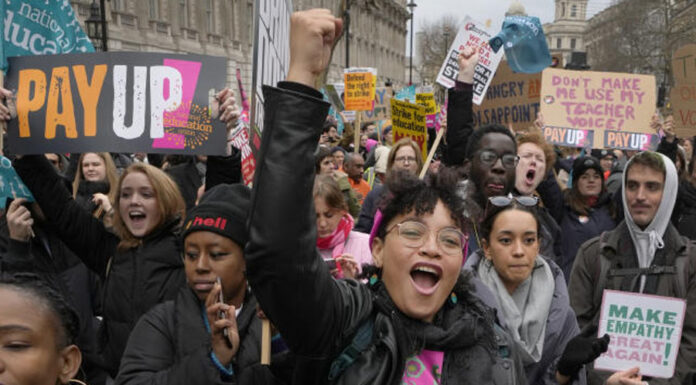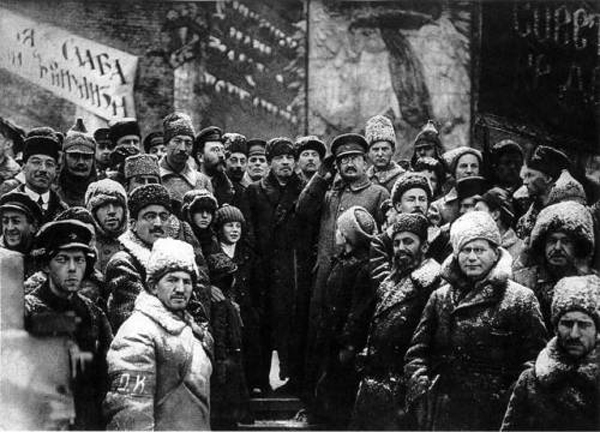Nigel Smith
There were at least 500,000 British workers on strike on February 1st. These included an all-out national strike by the PCS (civil servants) and the NEU (teachers). ASLEF and RMT train drivers were also on strike along with other groups of workers.
There were also nation-wide rallies called by the TUC (Trades Union Congress) in most major cities and many towns. In Yorkshire for example there were rallies in Leeds, Sheffield, Huddersfield, Doncaster, Hull, Halifax and York. The original intention of the TUC was to have rallies in Leeds, Sheffield and Hull, but local trades unionists and other activists organised separate localised events and were supported by the TUC.
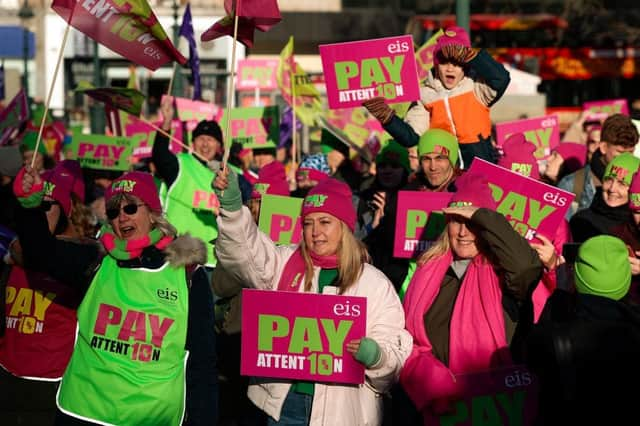
***
In Halifax at least 250 (a significant number for Halifax) attended a rally outside the industrial museum. Although the weather was awful with intermittent rain and strong winds the spirits of those assembled there were high. This location was chosen because there is a plaque outside the museum that commemorates the first general strike of 1842. Many of the demonstrators had come directly from the picket lines and there were many civil servants and teachers present.
The strikes and rallies have been widely reported because it would be virtually impossible for most people not to have been impacted by them in one way or another. The general mood of the public is one of support, with even ex Tory MPs such as Richard Balfe calling for the government to “sort out the mess they have created” and “to make moves towards the trades unions.” The business leader, Clive Watson, chair of the City Pub Group has asked that the government “compromises” and “finds a solution.” This is pressure coming from key constituencies usually supportive of the Conservative Party. The two above speakers were interviewed on BBC News. This is also a sign that the establishment is starting to see the intransigence of the government becoming unsustainable because the BBC is historically no friend of strikers.
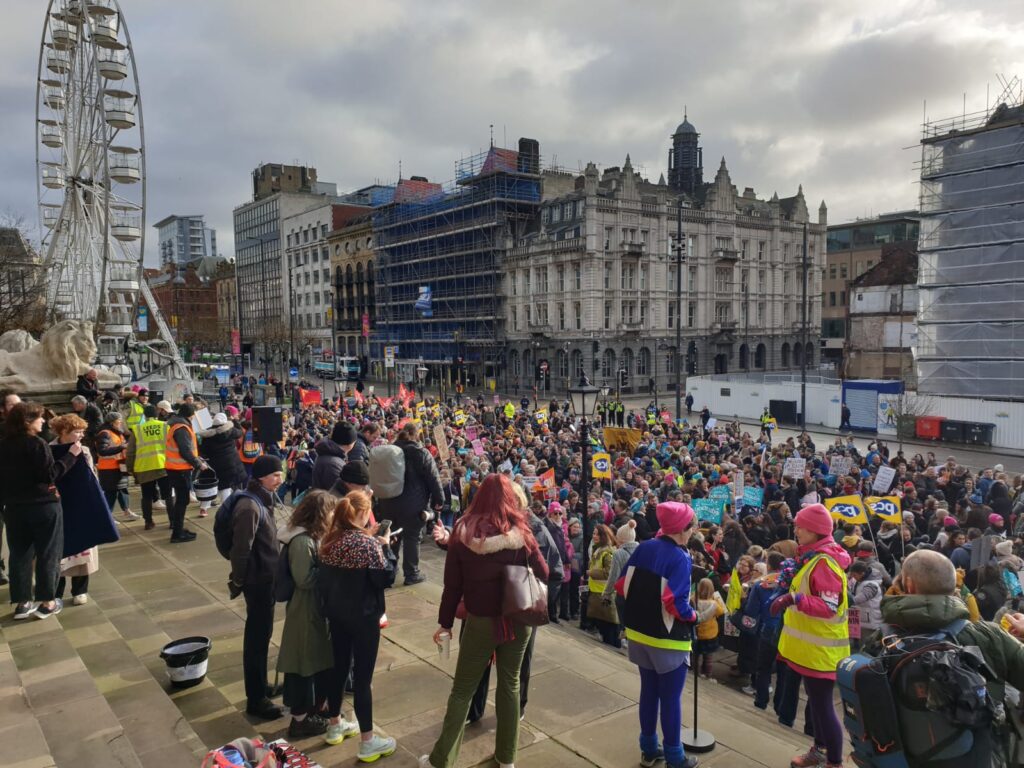
***
The government’s main “argument” for not awarding pay increases to public sector workers or allowing significant pay increases in the transport sector is that the increases will fuel inflation. Food inflation now stands at 16.3% and general inflation stands at 13.4% (Retail Price Index, Jan 18th, 2023). This level of inflation remains the responsibility of and has been created by: the super-rich, speculators, hedge fund managers etc. Actually, since wage increases are below current levels of inflation, they are actually dampening it, not leading it!
Share-holders are receiving big pay-outs from the rail companies and the privatised postal service while the railway workers and posties pay and conditions are being held back and attacked. According to Mark Serwotka (general secretary PCS) 100,000 civil servants were out on strike and the strikes are set to continue. He detailed a list of problems for his workers in the current economic situation including: 40 thousand who us food banks, 45 thousand who are on in-work benefits and 47 thousand on minimum wage. He also pointed out that his union’s membership was at its highest level for nine years and that the NEU (teachers union) had recruited 41 thousand new members in ten days, which goes to show that people will join unions when they see them fighting for them.
Although the TUC called this day of action its message to trades unionists speaking at rallies was tame. It asked speakers to focus on the lead message of the right to strike as much as possible. It went on to detail the governments intransigence so far and illustrate the inequalities that working people face but gave no kind of fighting message as to how the struggle might be taken forward.
Speakers and strikers however can draw their own conclusions and summon-up their own arguments. The need for more united action was mentioned at the Halifax rally several time with the call for a plan towards a general strike received with enthusiasm.
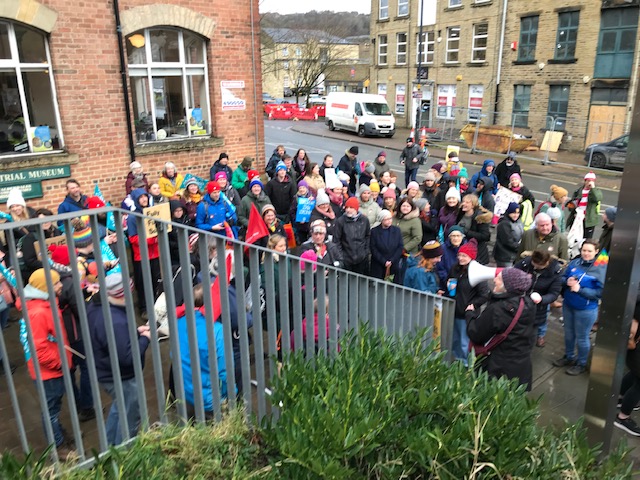
***
This is the first of what could be a series of days of action that will happen alongside and be coordinated with the strikes. Another two protests are planned for March 15 and April 29. The May Day date for the third day of action gives the movement time to deepen and widen its demands; to call on workers from across industry and the public sector to act together to address falling levels of pay.
The poor can’t wait. The increasing numbers of people on low pay can’t wait. The trade union movement can’t wait either. A defeat of this growing movement would have serious consequences for the morale of and power of the trade union movement. However, momentum seems to be building. The government seems to be losing support and losing the argument. It’s time to push forward in unity and support all workers in struggle in a conscious and disciplined manner.


